The TVET Leadership Workshop on Digital Transformation 2025 has successfully concluded at Shenzhen Polytechnic University (SZPU). The two-day workshop, held from November 13-14, was organized and hosted by the UNESCO Chair on Digitalization in TVET at Shenzhen Polytechnic University (SZPU), in collaboration with the UNESCO-UNEVOC International Centre for TVET, the UNESCO Regional Office for East Asia, and the UNESCO Regional Office for Southern Africa.
The workshop brought together 41 TVET leaders, practitioners, and experts from 30 countries across the Asia-Pacific and Africa. The programme blended expert lectures, practical assessment frameworks, a strategic consultation on AI, hands-on demonstrations, and peer-to-peer sharing.
The workshop commenced with opening remarks from Dr. Yang Congkun, Coordinator of UNEVOC Centre and the UNESCO Chair on Digitalization in TVET, who welcomed the delegates and set the stage for the collaborative sessions.
The first day focused on foundational knowledge and institutional strategy, with the morning sessions led by SZPU faculty. Module 1: Frontiers of EdTech Applications in TVET featured presentations from Dr. Lin Weipeng (School of Artificial Intelligence) on “AI Empowered TVET Teaching and Learning,” and Dr. Liu Jiachen (School of Undergraduate Education) on “Applications of Digital Twins in Higher Vocational Education.”
This was followed by Module 2: Curriculum Development on Emerging Technologies for TVET, which included presentations from Dr. Li Zhuyin (School of Electronics and Communication Engineering) on “From Classroom to Online Platform: Creating the ‘5G Deployment and Operations’ Digital Course,” and Dr. Liu Junjun (School of Materials and Environmental Engineering) on “Digital Transformation of Materials Engineering Education.”
The afternoon sessions shifted to institutional assessment and consultative discussions. First, in Module 3, Ms. Felister Munyi from UNESCO-UNEVOC led an interactive session on “Assessing Institutional Readiness and Capacity for Digital Transformation with the Self-Reflection Tool (SRT)”. Participants worked in groups to use the SRT to diagnose their institutional readiness for digitalization and create “digital profiles” of their organizations.
Following the SRT demonstration, Module 4 was a consultation session with focus group discussions on “Developing a Practical Guide on the Integration of AI in TVET”. This guide is a joint initiative between UNESCO-UNEVOC, SZPU, and Otto von Guericke University Magdeburg (OVGU), and is expected to be a key global reference framework for AI in TVET. The session was introduced by Mr. Kenny Muscat (UNESCO-UNEVOC) and Dr. Yang Congkun (SZPU), and the findings were synthesized by Mr. Hannes Tegelbeckers (OVGU).
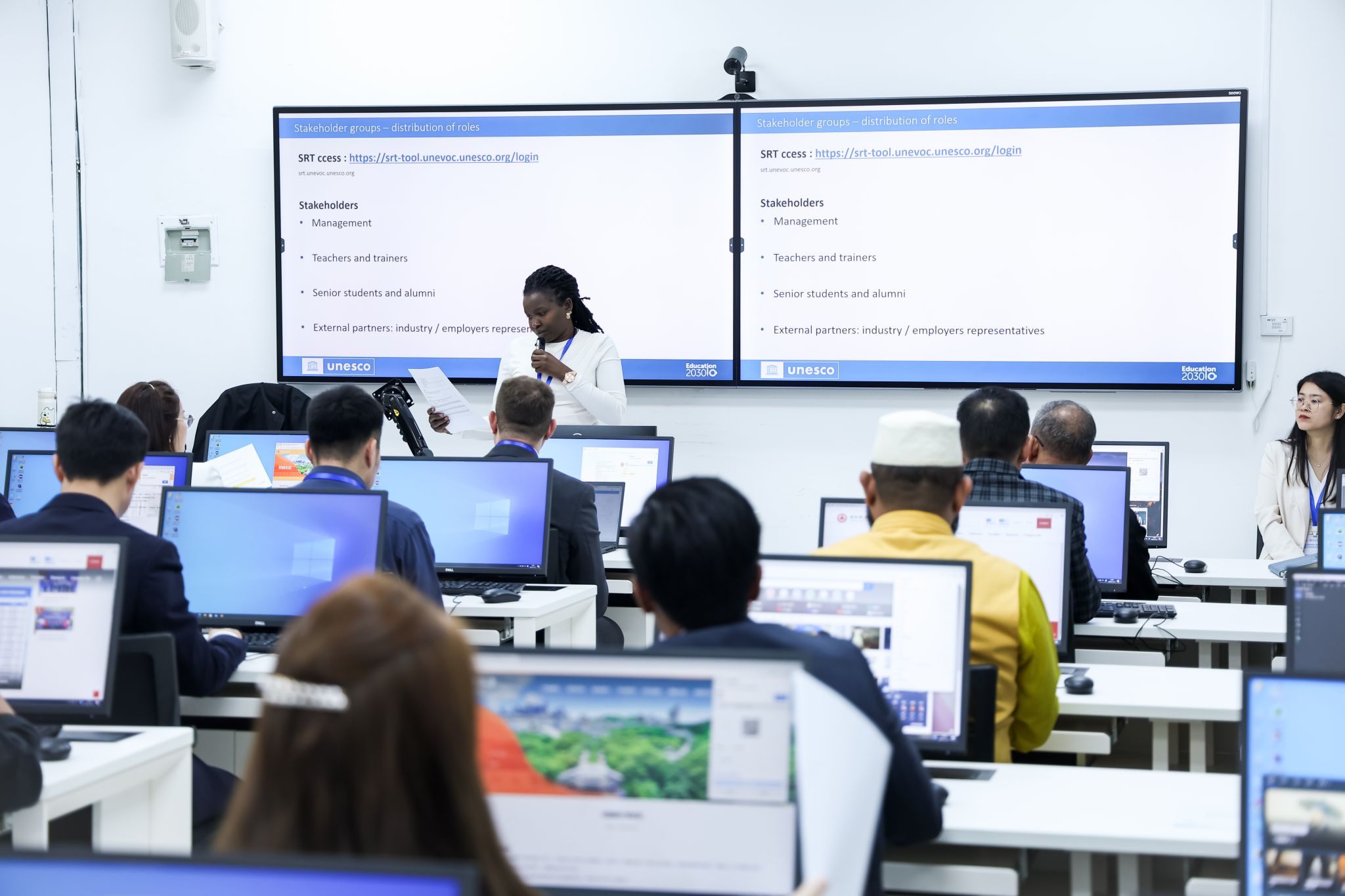
Demonstration of the Self-Reflection Tool
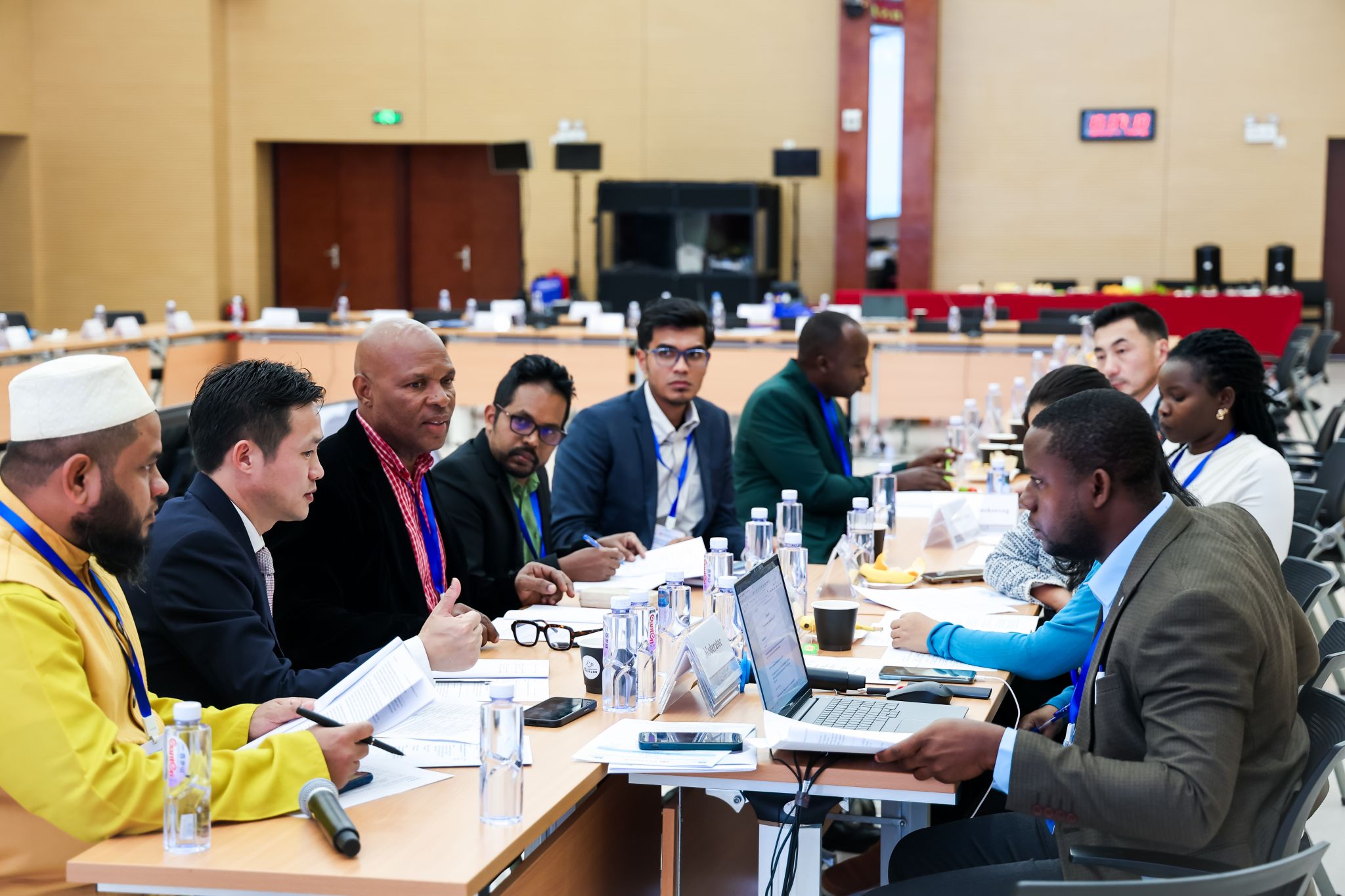
Focus group discussion on integrating AI in TVET
The second day was dedicated to hands-on application and immersive experience at SZPU’s digital training centres. Module 5: Teaching and Training Demonstration on Industrial Robot Technologies took place in the training centre of the School of Mechanical and Electrical Engineering, featuring “Exploring Practice Teaching in Industrial Robotics Through a Case Study on Hydraulics and Pneumatics” by Dr. Yang Min. Subsequently, Module 6 brought participants to the School of Automotive and Transportation Engineering for a Demonstration on New Energy Vehicle Technologies. This included the topics “Integration and Innovation: A New Talent Development Ecosystem Driven by Industry School” by Dr. Song Heran, and “Course Development for Short Term of Vocational Undergraduate Education with Formula Student China” by Dr. Sun Yi.
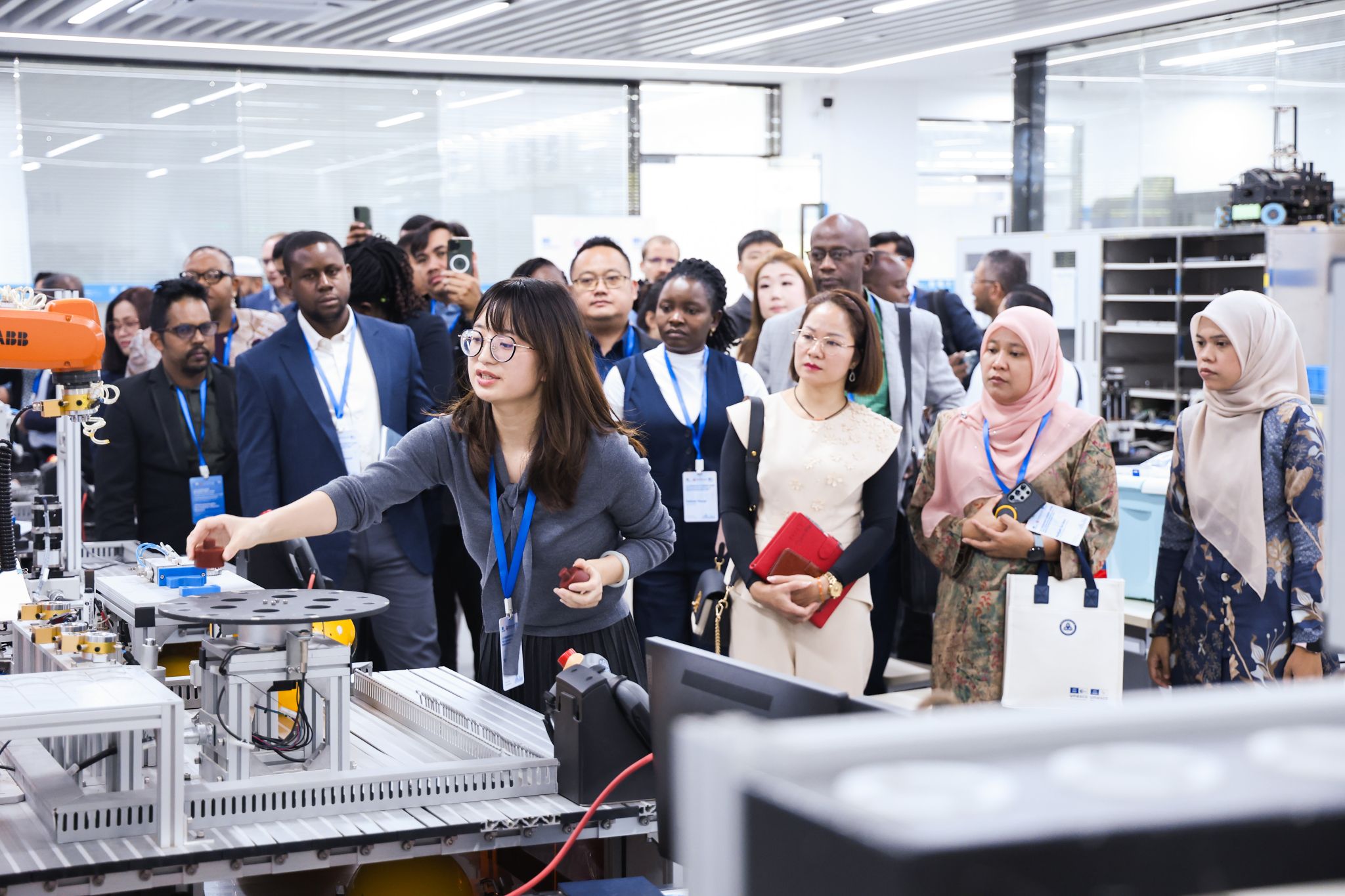
Demonstration on teaching industrial robot technologies
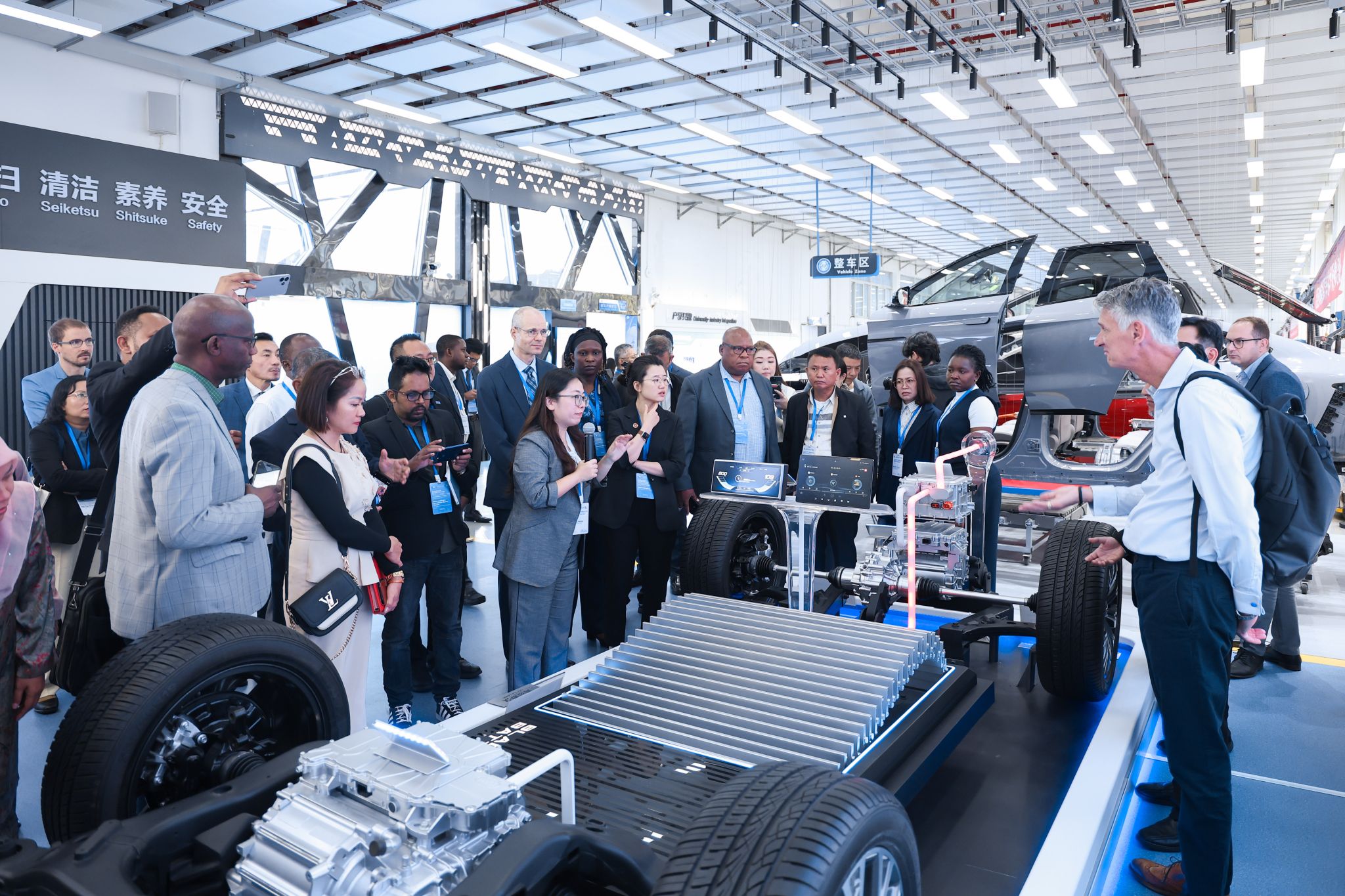
Demonstration on teaching new energy vehicle technologies
A cornerstone of the workshop was Module 7: Sharing of Innovative Practices in TVET Digital Transformation. This session featured presentations by participants from 12 countries—including Bangladesh, Indonesia, Malaysia, Myanmar, Nigeria, Pakistan, Namibia, Sri Lanka, Tanzania, Thailand, Zambia, and Zimbabwe—to share their own institutional case studies and national strategies on TVET digital transformation.
At the closing ceremony, Dr. Yang Congkun presented the certificates of participation to each participant. Concluding remarks were delivered by Dr. Friedrich Huebler, Head of UNESCO-UNEVOC, who encouraged all participating countries to engage in creative practices and build upon the collaborative network established at the workshop. Ms. Kong Qingling, Education Programme Specialist at UNESCO Regional Office for Southern Africa, commended the workshop’s design and emphasized that while embracing technology, institutions must also focus on addressing the “digital divide” to ensure inclusive TVET development.
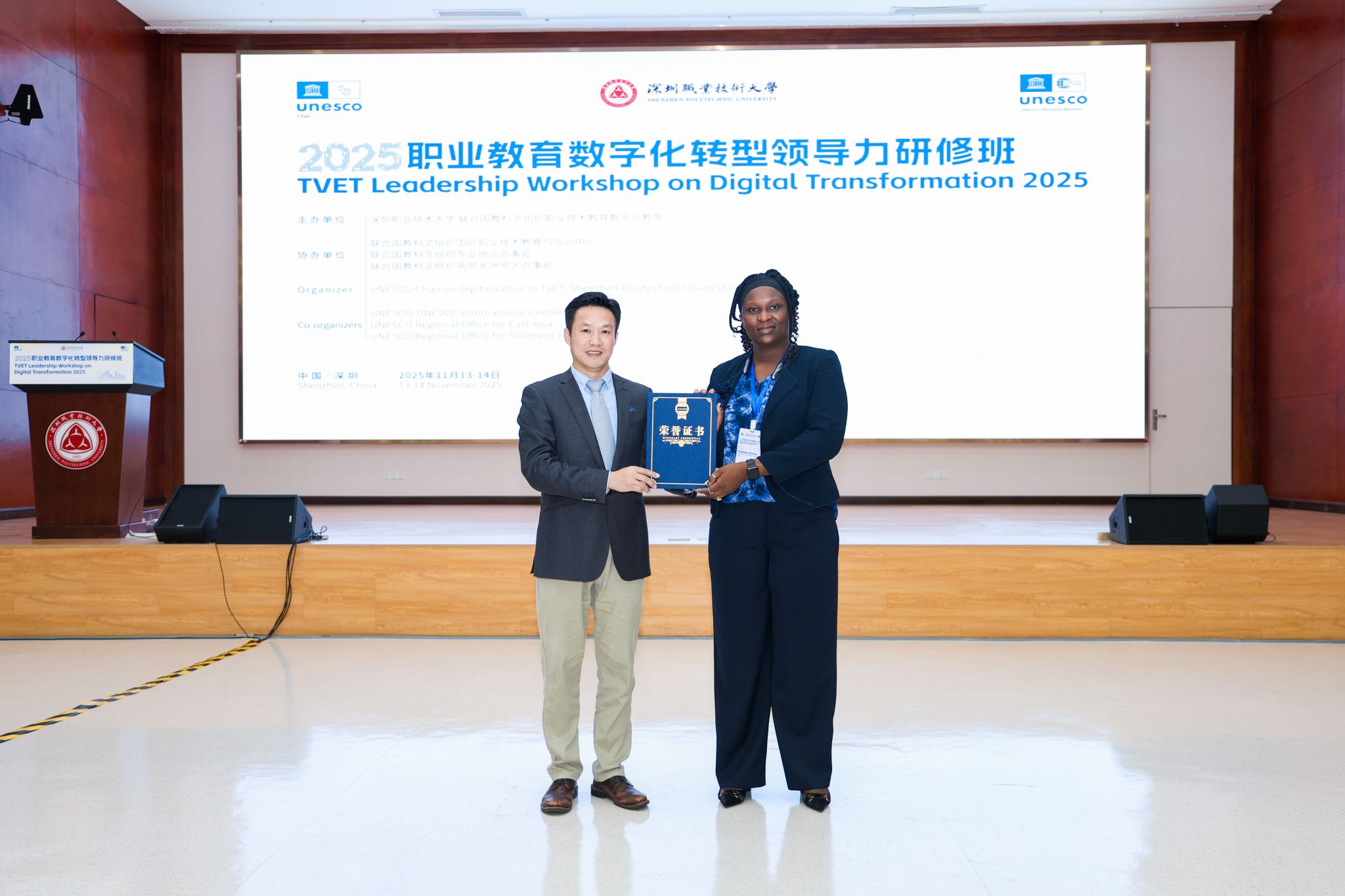
Participants being awarded certificates at the closing ceremony
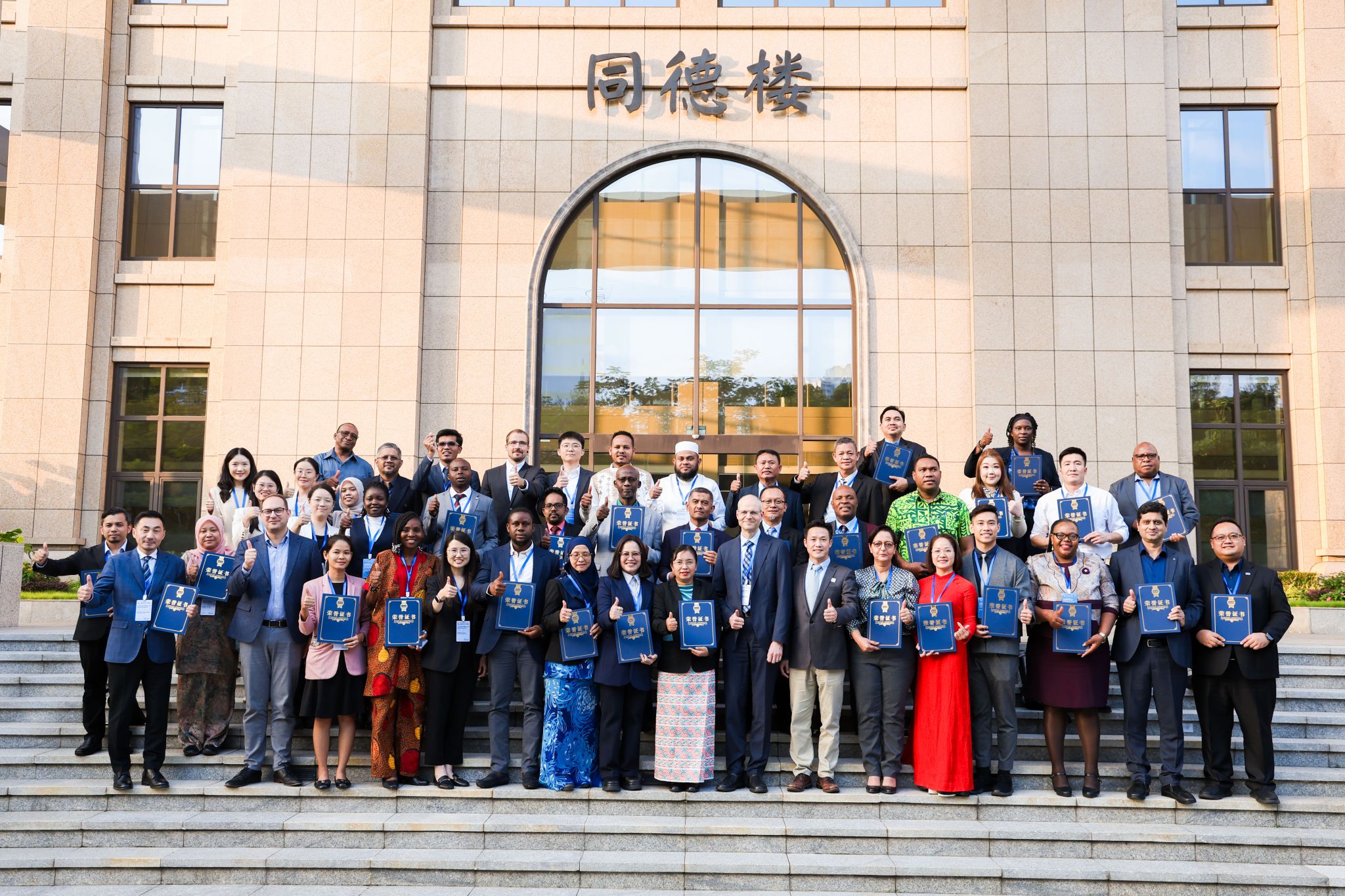
Group photo of participants
